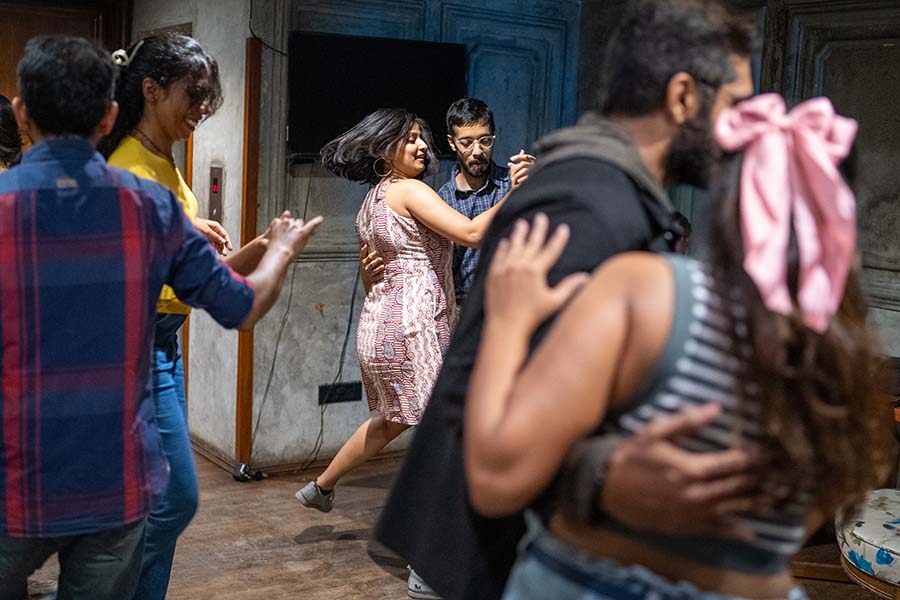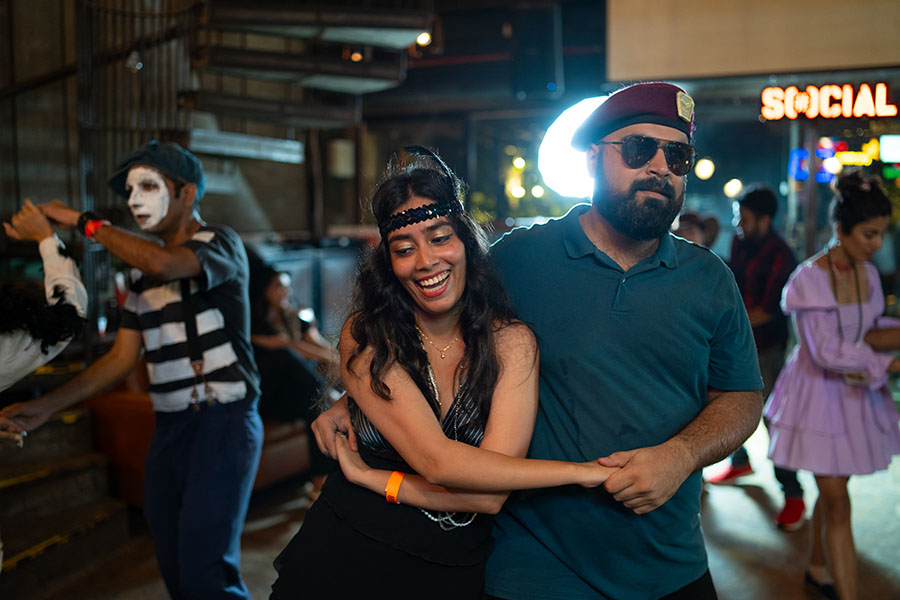Consent matters, for the social dancer
Why consensual social dancing is more important than 'sensual' dancing, and a few thoughts for your next Lindy Hop, Salsa or Jive dance night.

“Consent isn’t sexy”. “Consent is something for the bedroom”. “Consent once given is automatically implied”. You might have heard these arguments or some variation of them in a conversation. But if we want to create a better world for all, those notions are extra baggage we can no longer afford to carry along with us. It may seem like a lot of people are making too much out of the entire issue, but allow us to explain why there’s a very fundamental issue with the way many of us, especially those from South Asian, and even South East Asian cultures view consent.
Peeling away the layers of 'culture' and 'tradition'
It’s no secret that India has a systemic issue with women’s safety, and the tragic rape-murder of a doctor in Kolkata has yet again brought it to the forefront of the nation’s collective consciousness. While it may seem that a case so horrific happens every few years (along with the outrage it brings), while it may seem like everyone says “not all men” and “never again” every time; it always does happen again, and seems like it always will. But when we focus solely on the most extreme, we do a disservice to women, and to society as a whole because we ignore the more difficult problem to tackle; a problem that is far more widespread, subtle, and one that isn’t seen as a problem at all to many.
We’re talking about the benevolent sexism that stems from centuries of patriarchal ‘traditions’ and cultural ‘values’. It’s the casual “I know your problems better than you” attitude of a male doctor towards a female patient, a man at a grocery store assuming that the woman in front of him is on her period because she’s frustrated with her partner who is refusing to help out with the bags, or the assumption that if someone is at a Salsa dance night, they should be fine dancing with anyone who asks them. While this may be something that is seen as a generational issue, the data doesn’t lie; younger generations are more empathetic and seek equality more than their older counterparts. However, younger men today are turning more towards right-wing ideology and its toxic social worldview than ever before, and it doesn’t have to be this way.
As the number of women in academics and the workforce have grown and as they’ve excelled, the ‘traditional male role’ of breadwinner with a typical stable job has either fallen out of favour for some, or is simply seen as far more challenging or unattainable for others. Whatever the outcome, men are having to compete with women on a far wider scale than was historically the case, and such societal upheavals weigh heavy on many people. We see this in the stagnating wages of blue collar workers, of whom men make up a greater percentage, while holders of white collar jobs which usually require some degree of formal education, still maintain a greater degree of financial stability. Many men are too far entrenched in their sexist, conservative worldviews, and it certainly is no one else’s responsibility for their rehabilitation, but there’s a much larger segment of the population that is either not sold on this worldview, or is searching for an identity outside of traditional gender roles.
A scene from a social night or dance class in Mumbai
Social dancing certainly doesn't fit into this puzzle in some grand ‘save-the-world’ sort of way; not at all. But in many ways, changing the way we interact with others in our day to day lives, in new social settings is what can make significant positive change in the long run. Think about all the young men, and even women who may have an overly traditional view of consent and gender dynamics; that consent once given is always assumed or that consent can simply be assumed in certain specific scenarios.
Now imagine one of those young, impressionable women attending a Jive or sensual Bachata dance night where she’s thrown headfirst into the deep end of social dancing as a ‘follow’, who is expected to not only understand the steps being executed by the ‘lead’, but to also accept a dance request with little or no hesitation, or to ignore her own physical safety while being spun around and led into all kinds of dips/drops. Also imagine a young man in the same scenario watching experienced dancers dance with women who are absolute beginners, sometimes simply grabbing their hand and taking them to the dance floor, or leading them into multiple spins and complex steps with no concern for proper posture, form or their ability to understand the steps being led. We're basically teaching young men and women that consent doesn't matter, and that anything goes in the greater service of 'art' or social niceties. That’s not what we see as a healthy or positive experience for newcomers to a dance community, whether they’re young or old. This isn’t even specific to any one dance form; it can happen anywhere, whether it’s Salsa, Bachata, Lindy Hop or Kizomba. Nor is this even specific to a specific gender. As dance instructors we’ve heard from plenty of men who have had bad experiences with female dancers but are not comfortable saying anything about it.
We can, and must do better
In almost a decade of dance experience, we’ve seen the need to not only be great teachers and dancers, but to be better people, and to ensure our community and dance spaces are safer and more inclusive. And over the years, we’ve seen the results of our efforts in the way people’s behaviours and worldviews have changed for the better, even outside of the dance floor. While the bravery of a woman like Gisèle Pelicot in exposing the facade of "the rapist lurking in the bushes" is something we cannot even begin to imagine, we have felt for a long time that how we teach, and the community we create reflects who we are. Lindy Hop grappled with its own cases of sexual abuse over the decades, with the glorifying and idolising of prominent figures such as Max Pitruzzella and Stephen Mitchell, while simultaneously excusing or turning a blind eye to their abuses. Fortunately, the international community today has at least learned some lessons from it, and is better for it.

When we teach or conduct our events, we make sure that everyone understands a number of things. If asking someone for a dance, simply putting out your hand or grabbing the other person’s hand and leading them to the dance floor isn’t cool. You must ask the other person for a dance, and if they decline, take the rejection gracefully as most people don’t simply decline a dance out of spite or because they dislike you. We also encourage both men and women to ask for dances, and to also feel comfortable saying no when they don’t want to dance. During a dance, if either partner wishes to stop or take a break, for whatever reason, it’s perfectly acceptable to stop the dance. It’s also poor manners to give unsolicited feedback to your partner, unless you feel it might be something that is related to physical safety, such as unsafe posture/form. Even then, it’s best to do so with respect for the other person, and without placing blame. We also talk about the importance of proper connection (hand/body) between partners, how certain things may make someone uncomfortable, and how to be respectful of another person’s space. But personal space and physical safety isn’t the only thing we focus on either.
At our Swing and Blues dance classes in Bandra, we envision a dance between two people to be a conversation or a dialogue, rather than a one way street of communication where the lead suggests the steps and the follow simply goes along for the ride and maybe adds some styling. We encourage our students and provide them with the tools and skills to individually listen to and interpret the music, while also paying attention to and respecting their partner’s interpretation and expression of the music and dance, which is intrinsic to African American dance and culture. We’re always looking for better ways to do things, and make our dance community and classes a place for everyone to have a good time, and feel safe, and we hope you’ll join us some time and experience it first hand.
